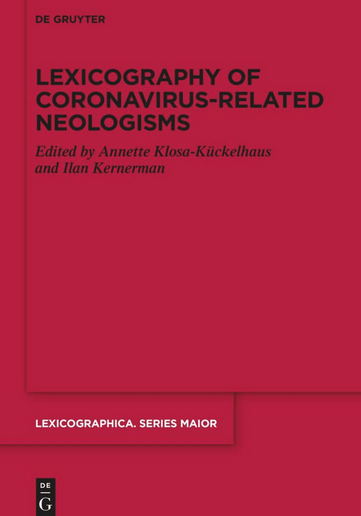New publication “The neologisms of the COVID-19 pandemic in European Portuguese”
Sílvia Barbosa and Susana Duarte Martins, researchers at the LLT group of CLUNL, sign a chapter in the book Lexicography of Coronavirus-related Neologisms, now published by De Gruyter.
COVID-19 has had a strong impact on the lives of people around the world, so that communication about new treatments, new care, new concerns, new behaviours was necessary and, whenever a discovery of this social and clinical reality happened, new words and/or neological expressions emerged at an extremely fast pace. The vocabulary in different domains and in everyday speech was expanded to accommodate a complex social, cultural, and professional phenomenon of changes. A new life gave birth to a new language – the “coronaspeak”. According to Thorne (2020), the “coronaspeak” has three stages: first, it emergedin the way medical aspects were communicated in everyday language; secondly, it oc-curred when speakers verbalized the experiences they had undergone and “inventedtheir own terms”; finally, this “new” way of speaking emerged in the government andauthorities’ jargon, to ensure that the new rules and policies were understood, and that population adopted socially responsible behaviours. This paper, entitled “The neologisms of the COVID-19 pandemic in European Portuguese: From media to dictionary”, focus on the second stage, as well as the context in which the neologism – be it a new word, a new meaning, or a new use – emerged, is used, and understood, through the observation of the occurrence of the new word(s) eitheron social networks or through dissemination texts (press) to confront it with the ones that Portuguese digital dictionaries have attested so far.
This paper is available in Open Access in the following link: https://doi.org/10.1515/9783110798081-010

- Barbosa, Sílvia; Duarte Martins, Susana (2022). The neologisms of the COVID-19 pandemic in European Portuguese: From media to dictionary. In: A. Klosa-Kückelhaus, I. Kernerman, eds., Lexicography of Coronavirus-related Neologisms. Berlin: De Gruyter, pp.191-220. ISBN 9783110798081.
 PT
PT